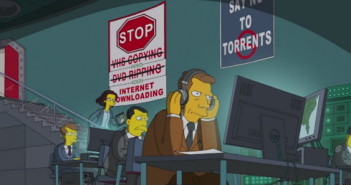Free Culture or Digital Obedience?
7 Feb

Even without “digital steroids” (the “free copy-paste” effect), can you imagine the “coopetitive” scenario from now on?…
“Although intellectual property rights seem right and piracy clearly seems wrong, the opposite also can be true. One man’s copyright terrorist is another’s creative freedom fighter: many forms of piracy transform society for the better. (…) During the nineteenth-century Industrial Revolution, the Founding Fathers [of USA] pursued a policy of counterfeiting European inventions, ignoring global patents, and stealing intellectual property wholesale. “Lax enforcement of the intellectual property laws was the primary engine of the American economic miracle,” writes Doron S. Ben-Atar in Trade Secrets.“The United States employed pirated know-how to industrialize.” Americans were so well known as bootleggers, Europeans began referring to them with the Dutch word “Janke,” then slang for pirate, which is today pronounced “Yankee.” Trace the origins of recorded music, radio, film, cable TV, and almost any industry where intellectual property is involved, and you will invariably find pirates at its beginnings. When Edison invented the phonographic record, musicians branded him a pirate out to steal their work, until a system was created for paying them royalties. Edison, in turn, went on to invent filmmaking, and demanded a licensing fee from those making movies with his technology. This caused a band of filmmaking pirates, among them a man named William, to flee New York for the then still wild West, where they thrived, unlicensed, until Edison’s patents expired. These pirates continue to operate there, albeit legally now, in the town they founded: Hollywood. William’s last name? Fox. (…) The pirates were on the wrong side of the law, but as Lawrence Lessig expounds upon in his book Free Culture, in hindsight it’s clear their acts were important. By refusing to conform to regulations they deemed unfair, pirates have created industries from nothing. Because traditionally society has cut these pirates some slack and accepted that they were adding value to our lives, compromises were reached and enshrined in law, and as a result new industries blossomed.”
in “The Pirates’s Dilemma” (a book by Matt Mason).


No comments yet